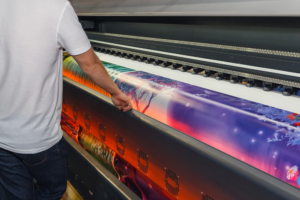In an era defined by rapid technological advancements and shifting consumer preferences, the textile manufacturing industry stands at the brink of transformation. As pioneers in the field, Texcoms experts offer insights into the future landscape of textile manufacturing, unveiling emerging trends and making predictions that will shape the industry in the coming years.
Embracing Sustainability:
One of the most prominent trends in the future of textile manufacturing is the increasing emphasis on sustainability. Consumers are demanding eco-friendly products, and manufacturers are responding by adopting sustainable practices throughout the production process. Texcoms experts predict a surge in the use of recycled materials, water-saving technologies, and renewable energy sources in textile manufacturing.
Key changes to look forward to
- Increased adoption of organic and recycled materials in fabric production.
- Integration of water-saving technologies and renewable energy sources in manufacturing facilities.
- Implementation of circular economy principles, such as closed-loop production systems and product recycling initiatives.
Digitalization and Industry 4.0:
The Fourth Industrial Revolution, characterized by automation, data exchange, and artificial intelligence, is revolutionizing textile manufacturing. Texcoms foresees the widespread adoption of digital technologies such as IoT-enabled machinery, predictive analytics, and smart sensors, streamlining operations, improving efficiency, and reducing costs.
Key changes to look forward to
- Deployment of IoT-enabled machinery and predictive maintenance systems for improved efficiency and reduced downtime.
- Implementation of digital twin technology for virtual simulation and optimization of production processes.
- Adoption of AI-driven quality control systems to ensure product consistency and minimize defects.
Customization and Personalization:
In the future, textile manufacturers will cater to the growing demand for customization and personalization. We predict a rise in on-demand manufacturing, where customers can customize their apparel and fabrics according to their preferences, leading to reduced waste and increased customer satisfaction.

Key changes to look forward to
- Implementation of digital printing technologies for on-demand customization of textile products.
- Development of mass customization platforms that allow customers to design their own fabrics and apparel.
- Integration of RFID tags and QR codes for product traceability and authentication in personalized items.
Advanced Materials and Textiles:
Advancements in material science are opening new possibilities for textile manufacturing. Texcoms experts anticipate the development of innovative materials with enhanced properties such as durability, stretchability, and sustainability. From smart textiles embedded with sensors to self-healing fabrics, the future holds endless possibilities for technological innovation in textiles.
Key changes to look forward to
- Introduction of innovative materials with enhanced properties, such as self-cleaning / stain proof fabrics and smart textiles for wearable technology applications.
- Utilization of bio-based and biodegradable materials to reduce environmental impact.
- Incorporation of nanotechnology for fabric coatings with improved durability and performance.
Globalization and Supply Chain Resilience:
The COVID-19 pandemic exposed vulnerabilities in global supply chains, prompting textile manufacturers to reevaluate their sourcing strategies. We predict a shift towards regionalization and diversification of supply chains to enhance resilience and mitigate risks. Additionally, technologies like blockchain are expected to play a crucial role in ensuring transparency and traceability across the supply chain.
Key changes to look forward to
- Diversification of sourcing locations to reduce reliance on single suppliers and mitigate risks.
- Implementation of supply chain visibility tools and blockchain technology for enhanced traceability and transparency.
- Establishment of regional production hubs and closer collaborations with local suppliers to improve agility and resilience.
Collaborative Ecosystems and Industry Partnerships:
In the future, textile manufacturers will increasingly rely on collaborative ecosystems and industry partnerships to drive innovation and stay competitive. Texcoms experts foresee strategic alliances between manufacturers, suppliers, and technology providers, fostering knowledge exchange and co-creation of solutions to address complex challenges facing the industry.
Key changes to look forward to
- Formation of strategic alliances between manufacturers, suppliers, and technology providers to co-create solutions and share resources.
- Implementation of open innovation platforms for crowdsourcing ideas and fostering collaboration across the industry.
- Adoption of agile project management methodologies to facilitate faster decision-making and implementation of innovative initiatives.
Conclusion:
As the textile manufacturing industry evolves, Texcoms remains at the forefront, guiding businesses towards a future defined by sustainability, digitalization, innovation, and collaboration. By staying ahead of emerging trends and embracing transformative technologies, manufacturers can navigate the shifting landscape and unlock new opportunities for growth and success.
In the vision of Texcoms, the future of textile manufacturing is bright, promising a world where sustainability, efficiency, and innovation converge to shape a more resilient and prosperous industry.


